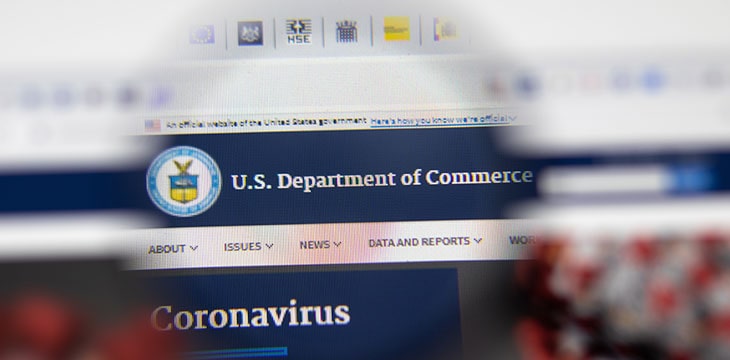|
Getting your Trinity Audio player ready...
|
The U.S. Department of Commerce wants public feedback on digital currency regulations, intending to publish 17 questions through which stakeholders can help shape the future of the industry.
The department was tasked with coming up with regulations for the industry by President Joe Biden, who, in his March executive order on digital assets, directed it to “work across the US government in establishing a framework to drive US competitiveness and leadership in, and leveraging of digital asset technologies.”
The 17 questions will be published through the International Trade Administration and pertain to several key digital asset industry issues, from mining to CBDCs and even merchant payments and remittances. Input on these questions will be “relevant to Commerce’s development of the framework for enhancing U.S. economic competitiveness in, and leveraging of, digital asset technologies.”
For starters, the department wants to know the features that have given US virtual asset service providers (VASPs) an edge globally and whether these features are sustainable in the long term. In line with this, it wants to know the obstacles they face and how regulations affect them.
While the U.S. has yet to implement comprehensive regulations for the nascent sector, several regulatory agencies have taken it upon themselves to police the industry, none more so than the Securities and Exchange Commission (SEC). Just recently, it doubled the headcount in its newly-renamed Crypto Assets and Cyber Unit to get a better handle on the industry.
Commerce also wants to know if VASPs located in the United States can attract and maintain talent. This, as several reports have revealed, hasn’t been a problem. In fact, startups in digital assets, Web3, and the metaverse sectors have been poaching talent from Internet and banking giants like Amazon, Google and JPMorgan regularly.
The department is also interested in the effect that a CBDC will have on the sector, how digital assets are integrated into payments and remittances and if they can promote financial inclusion. In addition, it wants to know the future role of block reward mining and if it’s compatible with renewable energy.
As CoinGeek has reported previously, the U.S. is now the world leader in block reward mining. Data from the University of Cambridge found that the country contributes over 37% of the global mining power.
Don’t miss out the first ever BSV Global Blockchain Convention taking place at the Grand Hyatt in Dubai on May 24 – 26. Book your tickets today!

 02-20-2026
02-20-2026 




